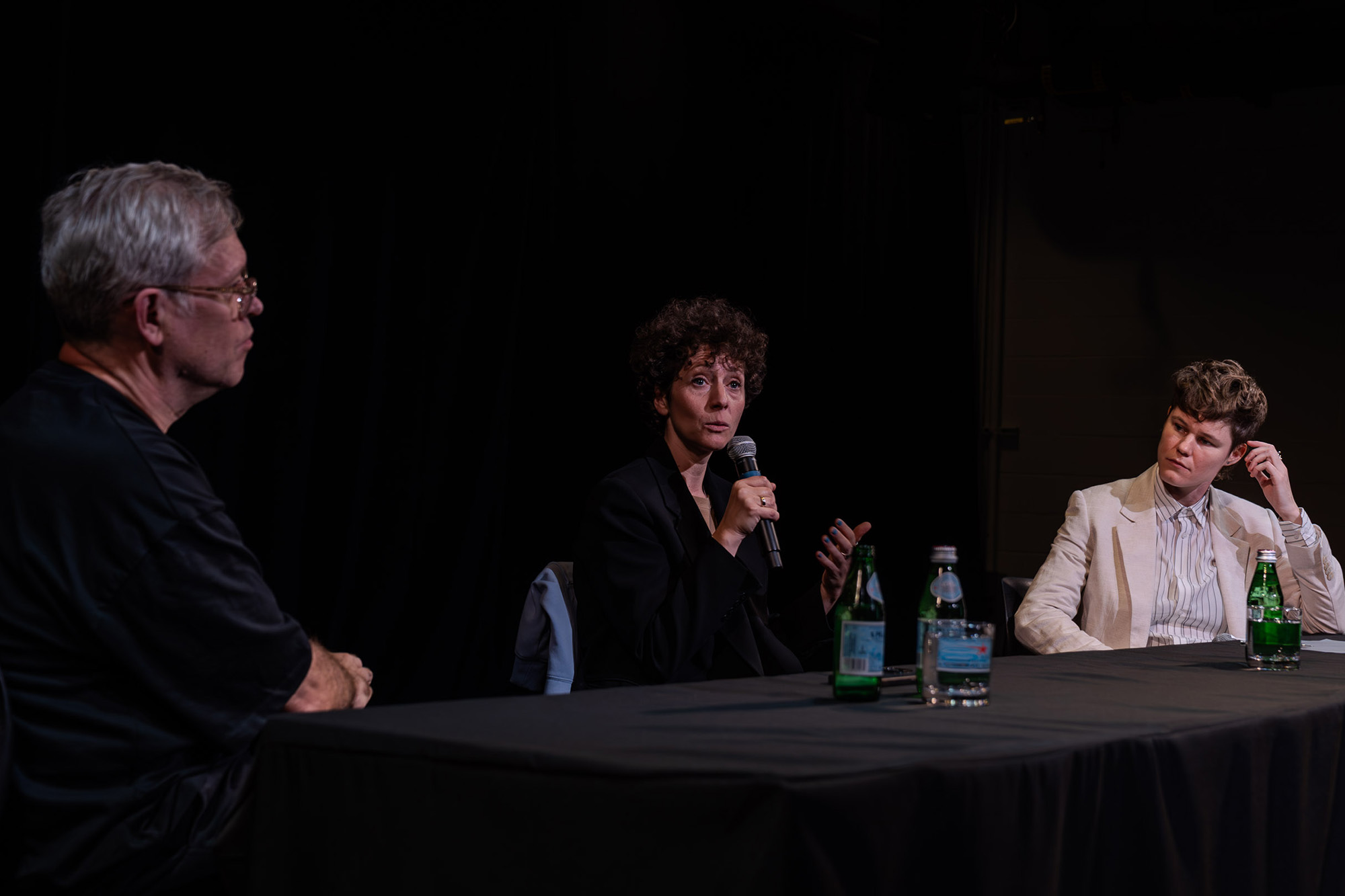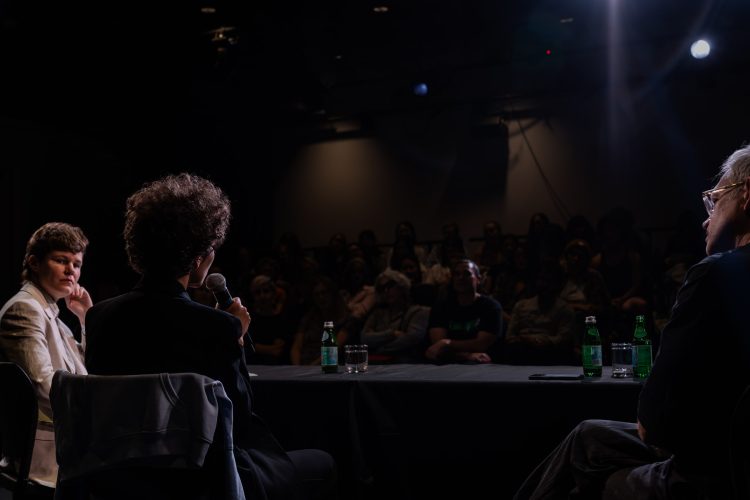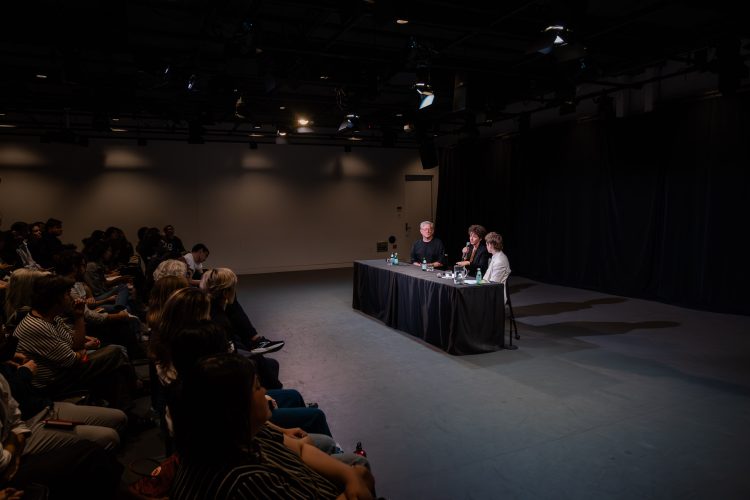
On September 30th, 2025, nearly 100 people gathered in MIT’s Theater Arts building to listen to a conversation on theater and politics with CAST Artist in Residency Sasha Salzmann. Many of those audience members were students from Global Languages and Theater Arts who had already read Salzmann’s work — a wide-ranging series of novels and plays that trace stories of migration, queerness, and identity across borders. Now they were meeting the author face-to-face.
The public event was just a small part of Salzmann’s time on campus; they joined the MIT community for an entire week as a part of their residency, which was also supported by the German Program in Global Languages as well as Theater. As explained on their website, CAST seeks to foster interdisciplinary exchange, “look[ing] for unexpected partnerships for visiting artists and seek[ing] to embed residencies in ongoing research and teaching at MIT.” Salzmann, who is based in Berlin and works as a playwright, novelist, curator, director, and activist, has the wide-ranging profile that made them ideal for this sort of exchange.
Over the course of the evening, Salzmann spoke to Lecturer of German Emily Goodling and Professor for Music and Theater Arts Jay Scheib about the power, and the pitfalls, of socially engaged art. As Goodling explained in her introduction, “Theater is a particularly apt genre with which to think through what’s happening around us because it is embodied and live – in a world where so many things can be immediately accessed or reproduced, there is a unique power in an art form that puts bodies in front of other bodies, in real time, night after night. Exactly how this works looks very different in Germany and the US, and these contexts have a lot to say to each other at this current moment in history.” Salzmann, Scheib, and Goodling compared the inherently politicized, state-funded German theater scene with the more entertainment-oriented US context, and spoke about moments when outside political events encroach on art spaces — such as when Germany’s far-right party Alternative for Germany demanded that a particularly progressive theater in Berlin stop receiving government funding.
Emily Goodling began the process of bringing Salzmann to campus began over a year and a half ago, a process which succeeded thanks to strong support from Senior Lecturer of German Dagmar Jaeger and Global Languages Director Per Urlaub. The public event in Theater was only the start of Salzmann’s time on campus as well as in the greater Boston area: over the course of a week, they visited four German classes at MIT and one at Harvard, and spoke at Boston’s Goethe Institute on their latest novel Glorious People. Their visit also extended beyond Boston, including stops in NYC, Washington DC, and Dartmouth College. Both Goodling and Salzmann emphasized the importance of reaching and bringing together multiple audiences in one trip, both at MIT and beyond.
In the German Program at MIT, Sasha’s visit provided an opportunity for some exciting additions to the curriculum, as Sasha visited four German classes during their week on campus. A natural pedagogue, Salzmann suggested short readings for several intermediate German classes, and then spent a couple days in dialogue with students about those texts. Students in Goodling’s advanced literature course, meanwhile, read Salzmann’s play Meteoriten as well as selections from queer theory and German theater history, and engaged with Salzmann in a wide-ranging conversation on everything from the americanization of German identity politics to futurity in contemporary theater aesthetics.
After the residency ended, students shared that they treasured the opportunity to interact in real time with the author of a work they had studied in class, and were struck by Salzmann’s clear-sightedness and vulnerability. “In my teaching, I try to get students outside of the classroom as much as I can, and to bring the outside world to my students in tangible ways,” said Goodling. “Having Sasha Salzmann on campus with us for an entire week accomplished both of those things in such an exciting way.”


